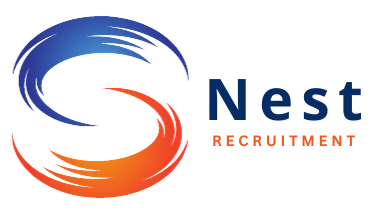Building resilience in healthcare staffing: Supporting nurses and carers through workforce challenges
Healthcare in Australia is at a turning point. Rising demand for services, staff shortages, and increasing care complexity are putting immense pressure on the sector. Nurses, Assistants in Nursing (AINs), and Personal Care Workers (PCWs) are expected to deliver exceptional care in an environment where resources are stretched thin.
In this landscape, resilience is no longer just a personal trait—it is a critical workforce priority. Supporting nurses and carers to build resilience not only strengthens individual well-being but also ensures the delivery of safe, consistent, and compassionate care across hospitals, aged care facilities, and community settings.
At Nest Recruitment, we see first-hand the challenges faced by the healthcare workforce. That is why we believe staffing solutions must go beyond filling shifts. They must also focus on creating environments that support and empower workers to thrive.
Why resilience matters in healthcare
Healthcare roles are inherently demanding. Long shifts, emotional intensity, and the responsibility of caring for vulnerable individuals all contribute to high levels of stress. Without support, this can lead to burnout, high turnover, and ultimately gaps in patient care.
Resilience is about equipping staff with the skills and support they need to manage stress, adapt to challenges, and maintain their passion for care. For nurses and carers, resilience ensures they can continue to provide the quality and compassion that patients deserve, even in tough conditions.
Key reasons resilience is so important in healthcare staffing include:
- Reducing burnout: A resilient workforce is less likely to experience burnout, improving retention and reducing reliance on constant recruitment.
- Maintaining quality of care: When staff feel supported, they are more capable of delivering consistent, high-quality care.
- Workforce stability: Resilience strategies help reduce turnover and absenteeism, which are major challenges in healthcare staffing.
- Enhancing team dynamics: Resilient individuals contribute to stronger teamwork and better communication in high-pressure environments.
Challenges faced by today’s healthcare workforce
To understand the need for resilience, it is important to recognise the pressures that nurses and carers are under:
- Staff shortages: With ongoing skills gaps, frontline workers often take on higher workloads, leading to fatigue.
- Emotional strain: Supporting patients and families through illness, disability, or end-of-life care is emotionally demanding.
- Changing care needs: An ageing population and increasing rates of chronic conditions require more specialised skills, adding to workplace stress.
- Unpredictable environments: Healthcare workers often deal with emergencies, rapidly changing rosters, and unforeseen challenges.
Without strategies in place, these pressures can quickly overwhelm even the most dedicated staff.
Building resilience through workforce support
There is no single solution to creating resilience in healthcare staffing. It requires a combination of organisational commitment, training, and individual support strategies.
1. Training and professional development
Upskilling gives workers not only the practical skills they need but also the confidence to face new challenges. Training in areas such as dementia care, palliative care, and stress management equips staff to handle complex situations with resilience.
2. Mental health and well-being initiatives
Access to counselling, peer support, and well-being programs can make a significant difference. Creating a culture where staff feel safe to talk about their challenges is critical.
3. Flexible staffing solutions
Agencies and providers can help reduce stress by offering flexible rosters that balance workers’ professional and personal lives. This is particularly important in avoiding fatigue and burnout.
4. Recognition and appreciation
Simple acts of recognition go a long way in boosting morale. When nurses and carers feel valued, they are more motivated to remain in the workforce and continue delivering exceptional care.
The role of staffing agencies in resilience
Recruitment agencies like Nest Recruitment are uniquely positioned to support resilience in the workforce. By supplying staff who are not only qualified but also matched to environments where they can thrive, agencies help reduce stress and ensure a better fit for both workers and providers.
Moreover, agencies can advocate for the importance of resilience by working with employers to implement supportive policies, encourage ongoing training, and create pathways for career development.
At Nest, we recognise that resilience is not just an individual responsibility. It is something that must be built into the way we support our workforce. We believe that a resilient workforce is the foundation of quality healthcare staffing.
Looking ahead: creating a stronger workforce
The future of healthcare in Australia depends on the strength and resilience of its frontline staff. Nurses, AINs, and PCWs deserve more than just recruitment—they deserve ongoing support, development, and recognition.
By investing in resilience, the sector can create a workforce that is not only capable of meeting today’s challenges but also prepared for tomorrow’s. Resilient staff stay longer, perform better, and provide the consistent, compassionate care that patients and families rely on.
At Nest Recruitment, we are committed to building that future. Our focus goes beyond connecting staff with employers—we are dedicated to supporting the well-being, growth, and resilience of every nurse and carer we place.











